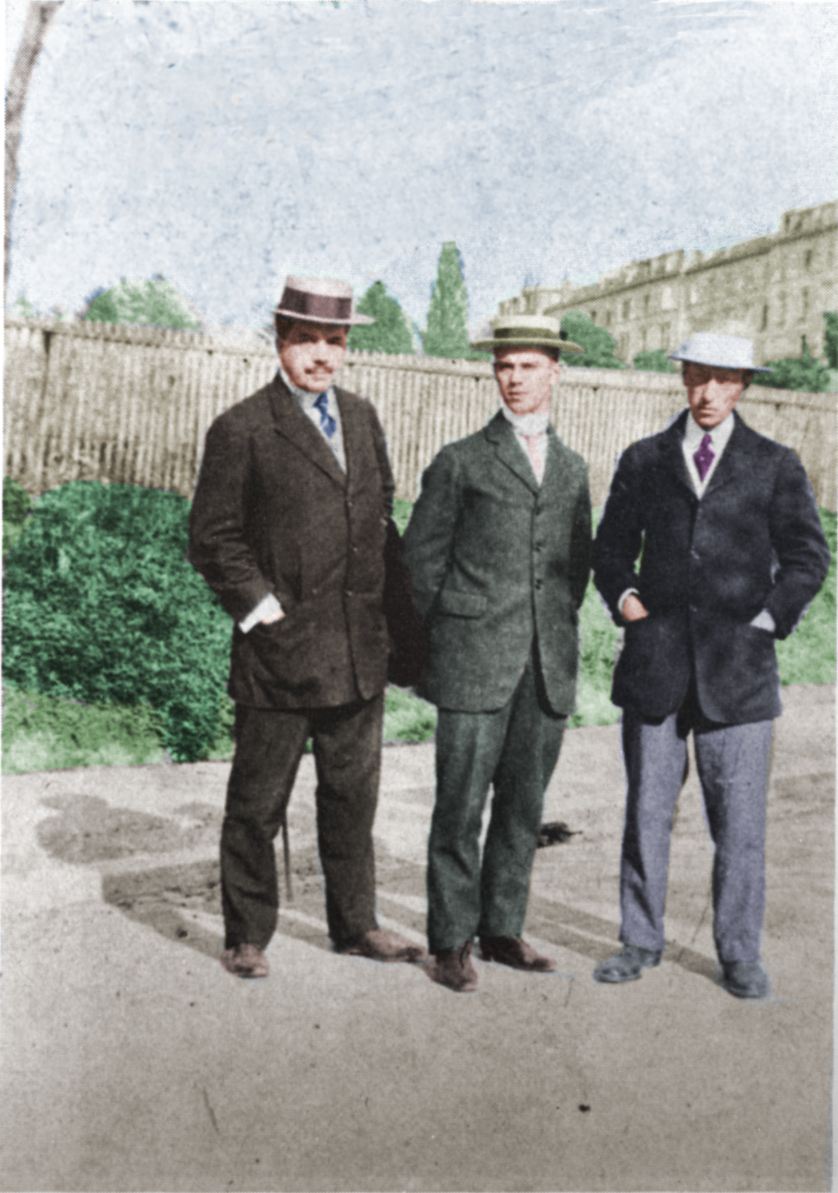 Tonight Philadelphia’s Center City Opera Theater presents the world premiere of Danse Russe, my second operatic collaboration with Paul Moravec. The final dress rehearsal went incredibly well. Paul and I are feeling very good about everybody and everything.
Tonight Philadelphia’s Center City Opera Theater presents the world premiere of Danse Russe, my second operatic collaboration with Paul Moravec. The final dress rehearsal went incredibly well. Paul and I are feeling very good about everybody and everything.
You might enjoy reading this synopsis of the opera that I wrote for the program:
In old age, Igor Stravinsky, the greatest composer of the twentieth century, revisits the stage of the Paris theater where The Rite of Spring, the ballet score that was his youthful masterpiece, was first performed a half-century earlier, causing a riot. His memories take him back to 1913, the year when he wrote the piece. In his mind, he becomes young again and is joined on stage by Sergei Diaghilev, the ballet impresario who commissioned The Rite of Spring; Vaslav Nijinsky, who choreographed it; and Pierre Monteux, who conducted the first performance. The four men act out the events, some comical and others serious, leading up to the opening-night riot. Then Stravinsky awakes from his reverie. An old man once again, he reflects on how much the world has changed since 1913, and as the opera ends he sings with love of the “holy Russian spring” of his childhood.
That’s about the size of it.
What follows is a miniature essay about Danse Russe that Paul and I wrote yesterday. It, too, will be in the program. If you’re coming, we look forward to seeing you there. If you’d like to come but haven’t bought tickets, go here for more information.
And now…away I go!
* * *
Igor Stravinsky’s The Rite of Spring was the most important piece of music written in the twentieth century, but it was also a work for the stage, and anyone who has written such a work knows that the process of moving it from the page to the stage is of necessity mad and unpredictable. That’s why Danse Russe is a comedy–what we call a “vaudeville.” It occurred to us at the outset that what Stravinsky and his collaborators went through in order to bring The Rite of Spring to fruition must have been funny, at least at times. Thus we decided to tell the story of its creation as a backstage comedy, one that makes use of the contemporary conventions of vaudeville: the dances, the jokes, the straw hats, even the pretty girl who brings in the easel cards that announce each change of scene. What we’ve written is a cross between an opera and an old-fashioned musical, and that, too, is deliberate. This is an American take on a Russian masterpiece.
But if Danse Russe is a comedy, it is, ultimately, a serious comedy, one that seeks to offer the audience a fractured glimpse into the mysteries of the creative process. Yes, it’s a comic-book version of a celebrated moment in cultural history, but much of what you’ll be seeing is deeply informed by the historical record of the events leading up to the riotous 1913 premiere of The Rite of Spring. The words that are sung and spoken by Stravinsky, Sergei Diaghilev, Vaslav Nijinsky and Pierre Monteux in Danse Russe are in many cases based on things that they actually said or wrote in real life. Only the tone has been changed.
Howard Hawks, the director of such classic screwball comedies as Bringing Up Baby and His Girl Friday, liked to say that “the only difference between comedy and tragedy is point of view.” Though our point of view on the making of The Rite of Spring is comic, we know that it was very serious business indeed, and so we’ve sought to portray it with love and understanding–and a smile.

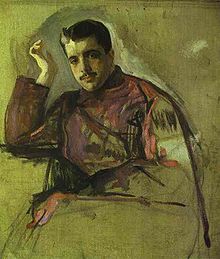 Only once was I fully present in the emotional moment, and that was when I heard the new
Only once was I fully present in the emotional moment, and that was when I heard the new 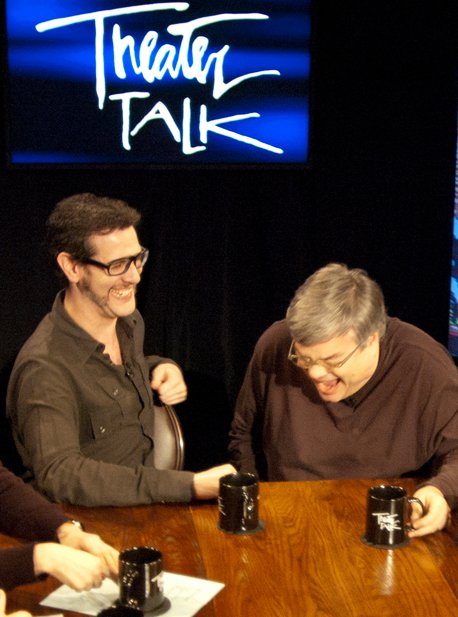 Adam Feldman, the drama critic of Time Out New York, sent me this snapshot taken on the set of CUNY-TV’s
Adam Feldman, the drama critic of Time Out New York, sent me this snapshot taken on the set of CUNY-TV’s 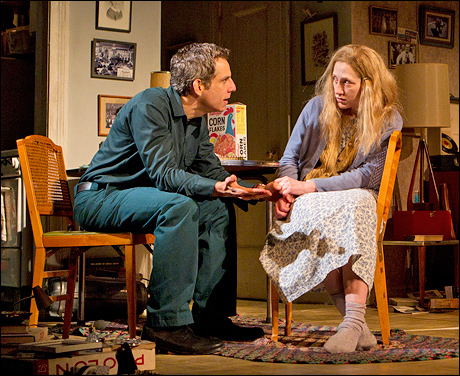 It’s dauntingly difficult to bring off John Guare’s “The House of Blue Leaves,” which may explain why this modern masterpiece, first performed in 1966, hasn’t been seen on Broadway since 1987. The trick is in the tone. “The House of Blue Leaves” is a comedy about hopelessness, and it plays like “You Can’t Take It With You” rewritten by Eugène Ionesco: It won’t work if it isn’t zany, and it won’t work if it isn’t horrifically disturbing. Fortunately, David Cromer has cracked Mr. Guare’s complex code with the effortless understanding that he brings to every show he stages. The result is a production in which three big names–Ben Stiller, Edie Falco and Jennifer Jason Leigh–are presented not as flop insurance but as artists, and in which full justice is done to one of the best American plays of the 20th century.
It’s dauntingly difficult to bring off John Guare’s “The House of Blue Leaves,” which may explain why this modern masterpiece, first performed in 1966, hasn’t been seen on Broadway since 1987. The trick is in the tone. “The House of Blue Leaves” is a comedy about hopelessness, and it plays like “You Can’t Take It With You” rewritten by Eugène Ionesco: It won’t work if it isn’t zany, and it won’t work if it isn’t horrifically disturbing. Fortunately, David Cromer has cracked Mr. Guare’s complex code with the effortless understanding that he brings to every show he stages. The result is a production in which three big names–Ben Stiller, Edie Falco and Jennifer Jason Leigh–are presented not as flop insurance but as artists, and in which full justice is done to one of the best American plays of the 20th century.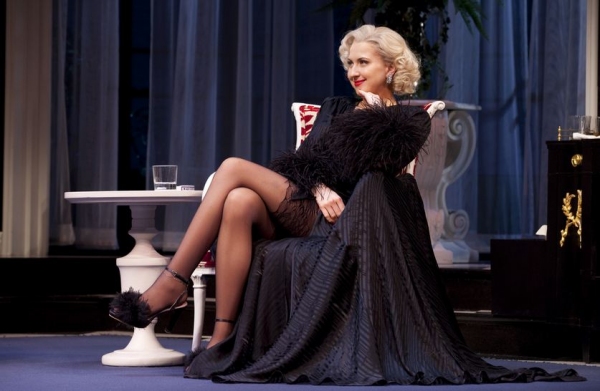 The sound that you’re hearing at the Cort Theatre these days is one of the rarest in the world: It’s the collective purr of an audience falling in love with a brand-new face. Nina Arianda made a huge impression on everyone who saw her make her professional stage debut last year in the Off-Broadway premiere of David Ives’ “Venus in Fur.” Now she’s playing the not-so-dumb-blonde in a Broadway revival of Garson Kanin’s “Born Yesterday,” the play that put Judy Holliday on the map in 1946 and is going to do the same thing for Ms. Arianda. Ms. Arianda is a charismatic comedienne who is as funny as she is sexy, and anyone capable of resisting her charms is both blind and deaf….
The sound that you’re hearing at the Cort Theatre these days is one of the rarest in the world: It’s the collective purr of an audience falling in love with a brand-new face. Nina Arianda made a huge impression on everyone who saw her make her professional stage debut last year in the Off-Broadway premiere of David Ives’ “Venus in Fur.” Now she’s playing the not-so-dumb-blonde in a Broadway revival of Garson Kanin’s “Born Yesterday,” the play that put Judy Holliday on the map in 1946 and is going to do the same thing for Ms. Arianda. Ms. Arianda is a charismatic comedienne who is as funny as she is sexy, and anyone capable of resisting her charms is both blind and deaf….